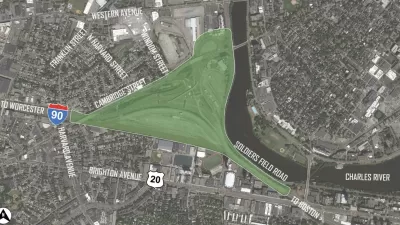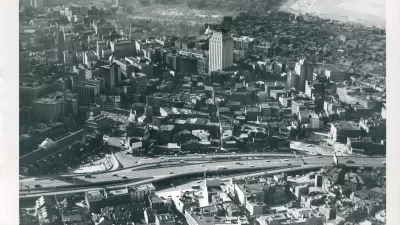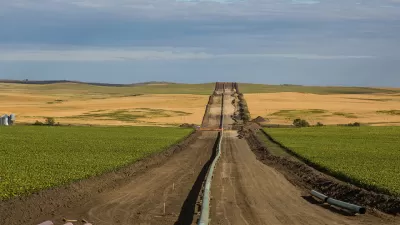Several communities across Massachusetts are looking to take private property to build new schools.

Laura Krantz of the Boston Globe reports on several ongoing eminent domain disputes impacting communities around the state. In the city of Waltham, the mayor and city councilors are at odds over the potential eminent domain of a retirement home for priests that also hosts a number of community programs. The city wants the land to build a new high school, and the mayor argues that the priests violated an agreement that they had with the city not to market or sell the property for other uses.
In Massachusetts, municipalities have the power to seize land as long as they show that it is in the public interest. Cities and towns must compensate the property owner for the land’s fair market value but otherwise have broad power.
...
For now, the mayor said, the proposal to seize the land is dead, because a majority of the council opposes it. But just last month she sent a three-page letter to the city explaining why that location is still ideal for a new school.
Jim Lampke, executive director of the Massachusetts Municipal Lawyers Association, said eminent domain is common but always a last resort when a community can’t reach a voluntary agreement with a property owner. He said he has not seen communities abuse the power.
Other eminent domain proposals in Brookline and Lowell, MA have received mixed, but mostly negative, responses from citizens and property owners with plans for new schools requiring the taking of private property.
FULL STORY: Across region, communities mull seizing private property

Trump Administration Could Effectively End Housing Voucher Program
Federal officials are eyeing major cuts to the Section 8 program that helps millions of low-income households pay rent.

Planetizen Federal Action Tracker
A weekly monitor of how Trump’s orders and actions are impacting planners and planning in America.

Ken Jennings Launches Transit Web Series
The Jeopardy champ wants you to ride public transit.

Rebuilding Smarter: How LA County Is Guiding Fire-Ravaged Communities Toward Resilience
Los Angeles County is leading a coordinated effort to help fire-impacted communities rebuild with resilience by providing recovery resources, promoting fire-wise design, and aligning reconstruction with broader sustainability and climate goals.

When Borders Blur: Regional Collaboration in Action
As regional challenges outgrow city boundaries, “When Borders Blur” explores how cross-jurisdictional collaboration can drive smarter, more resilient urban planning, sharing real-world lessons from thriving partnerships across North America.

Philadelphia Is Expanding its Network of Roundabouts
Roundabouts are widely shown to decrease traffic speed, reduce congestion, and improve efficiency.
Urban Design for Planners 1: Software Tools
This six-course series explores essential urban design concepts using open source software and equips planners with the tools they need to participate fully in the urban design process.
Planning for Universal Design
Learn the tools for implementing Universal Design in planning regulations.
Ada County Highway District
Clanton & Associates, Inc.
Jessamine County Fiscal Court
Institute for Housing and Urban Development Studies (IHS)
City of Grandview
Harvard GSD Executive Education
Toledo-Lucas County Plan Commissions
Salt Lake City
NYU Wagner Graduate School of Public Service





























